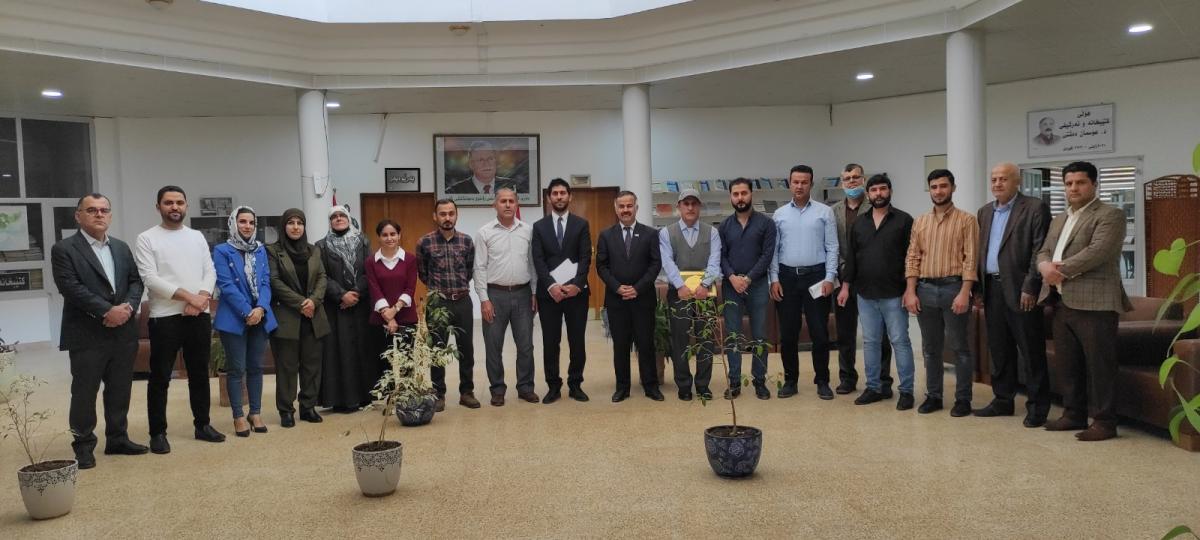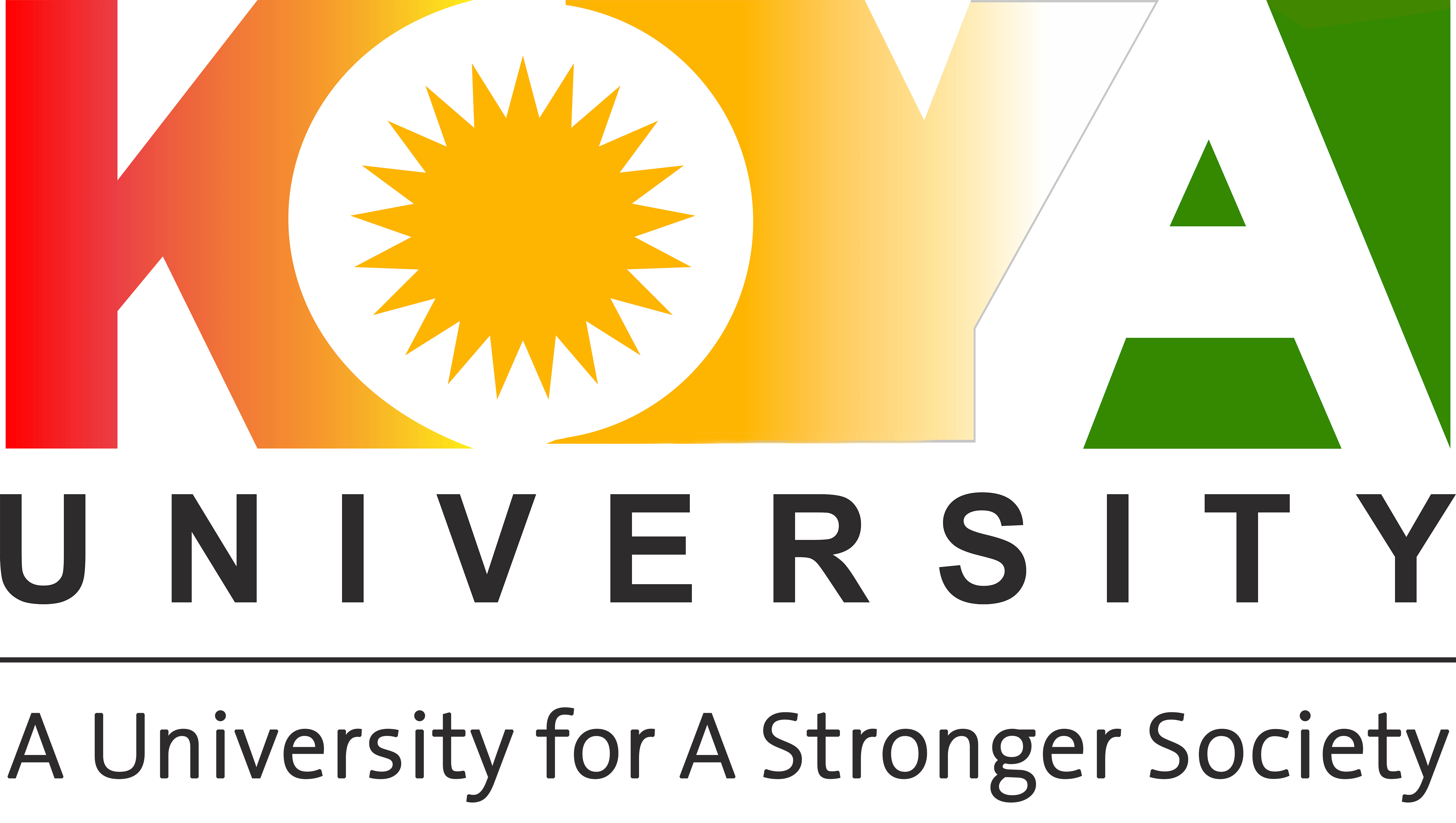As part of its Continuous Improvement Programme, the Department of Clinical Psychology at Koya University held a training course entitled “Bloom Taxonomy, Types of Questions and Tests” from 29th of March to 5th of April, 2022, which targeted the academic staff of Faculty of Science and Health.
Bloom’s Taxonomy is a hierarchical ordering of cognitive skills that can, among countless other uses, help teachers teach and students learn. This framework, which was published by Benjamin Bloom with collaborators Max Englehart, Edward Furst, Walter Hill, and David Krathwohl in 1956, can be used to: create assessments, frame discussions, plan lessons, evaluate the complexity of assignments, design curriculum maps, develop online courses, increase the rigor of a lesson, simplify an activity to help personalize learning, design a summative assessment, plan project-based learning, frame a group discussion, and more. Besides, it can be applied to almost anything, as it simply provides an order for cognitive behaviors. In this training course, the six major categories of this framework, which are Knowledge, Comprehension, Application, Analysis, Synthesis, and Evaluation, with the sub categories from simple to complex were explained and elucidate practically.
Training course details
Title: Bloom Taxonomy, Types of Questions and Tests
Name of trainees: Prof. Dr. Jabar Ahmed Abdulrahman
Number of participants: 23
Date: From 29th of March to 5th of April
Number of sessions: 12 sessions. 2 hrs per session
Location: Koya University Library
Training Course Schedule:
First day: 29/03/2022
- Measurement, Assessment, and Evaluation
- Types and levels of evaluation:
pre-evaluation, Formative evaluation, Diagnostic Evaluation, summative evaluation (or final), and performance evaluation.
Second Day: 30/03/2022
- Domains and levels of objectives: Cognitive domain (Bloom Taxonomy), Psychomotor domain (Skill), Affective domain (or Emotional).
- Learning Goals
- Learning Objectives
- Learning Outcomes
Third Day: 31/03/2022
- Writing Learning Outcomes
- Formula for Writing Learning Outcomes
- Learning activities
- The connection between Learning Outcomes and learning activities
- Bloom’s Taxonomy
- Cognitive domain
Fourth Day: 3/04/2022
- Remembering (Knowledge)
- Comprehension
- Application
- Analysis
- Synthesis
- Evaluation
- Affective domain
- Psychomotor Domain
Fifth Day: 4/04/2022
Creating and Using Rubrics - Why Use Rubrics? - More Advantages of using Rubrics in Assessment: - The Result of Using Rubrics - types of rubrics Which Type is Better? - How to Write a Rubric - Examples of Rubric
Sixth day: 5/04/2022
Types of questions - tests & Examinations
The conclusion from the training course, and answering questions
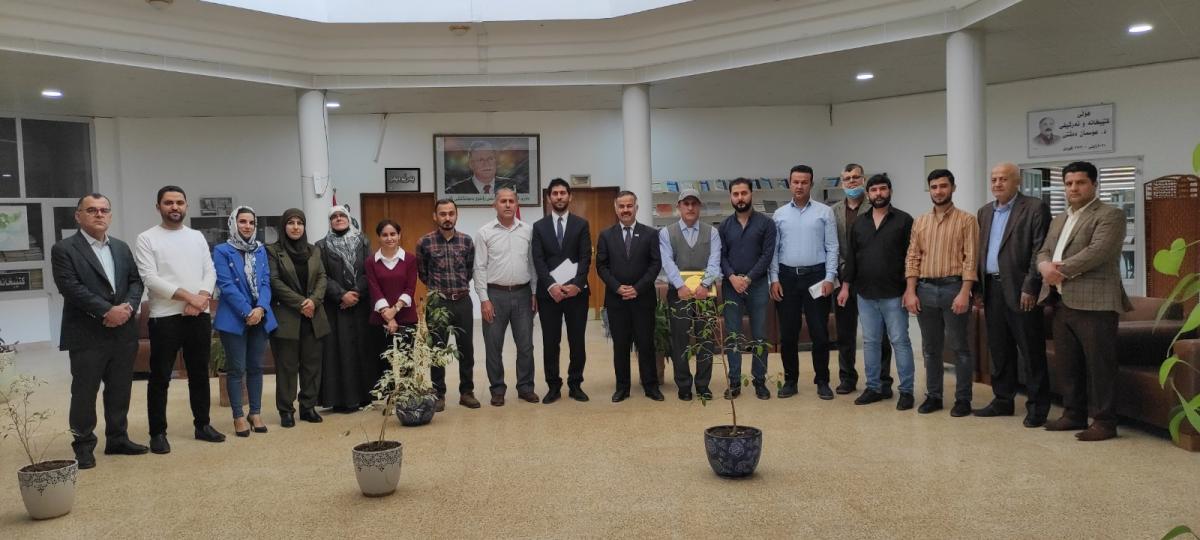
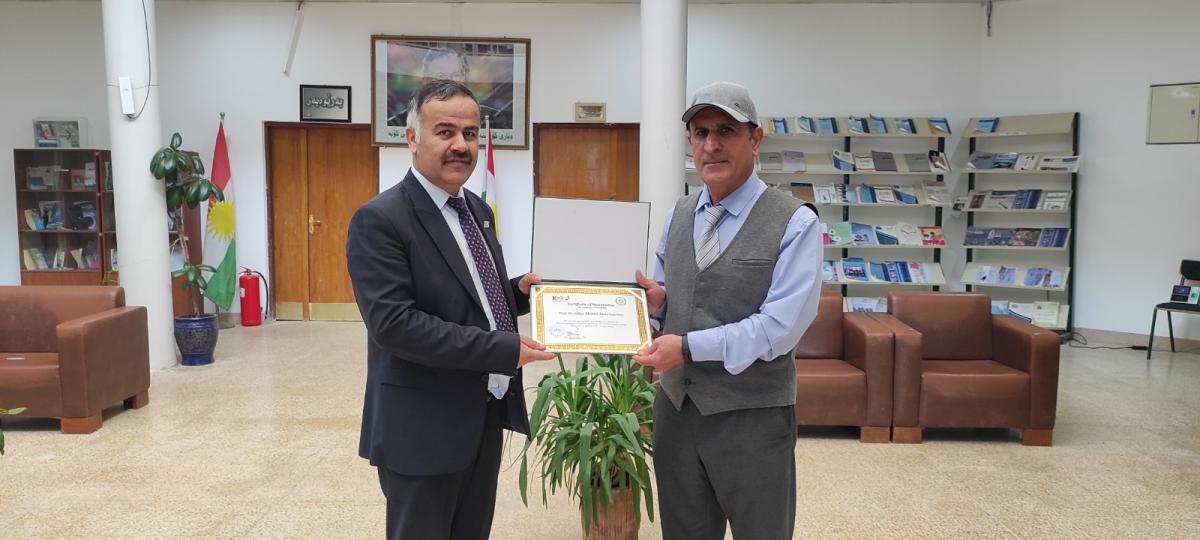
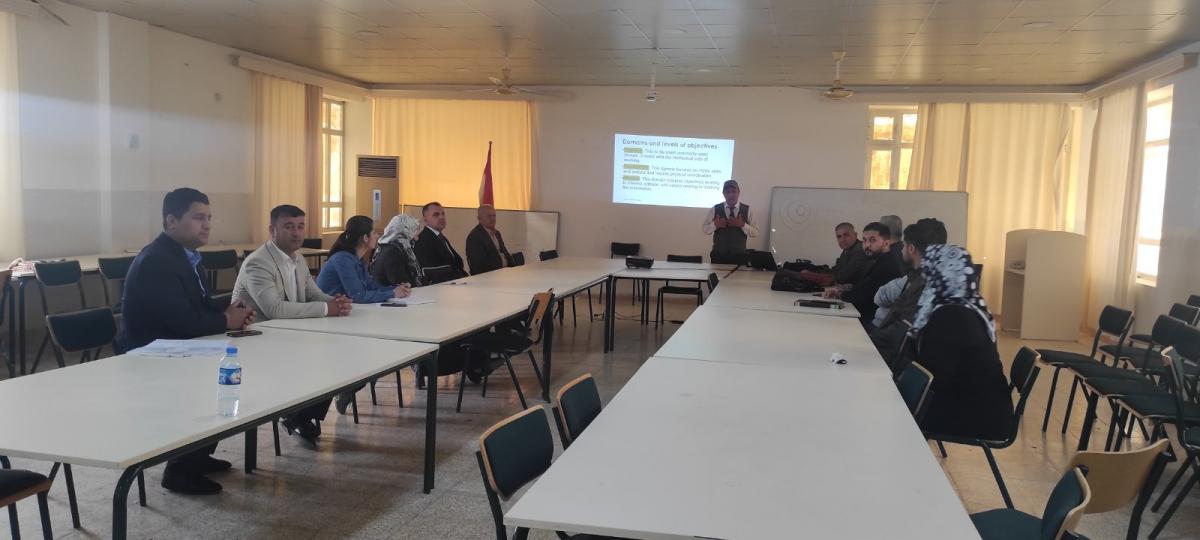
-----
Koya University (KOU) is located in the city of Koya (Koy Sanjaq) which is 1.0 hr drive to the East of the Kurdistan Region capital Erbil (Arbil, Hewlér) in Kurdistan Region of F.R. Iraq. It is on the foothills of beautiful high mountain. Its campus has been carefully laid out to embrace the beautiful mountainous nature. . There are 4 Faculties and 2 Schools in KOU; Faculty of Engineering (FENG), Faculty of Science and Health (FSCH), Faculty of Education (FEDU), Faculty of Humanities and Social Silences (FHSS), Shcool of Physical Education (SPHE) and School of Medicine (SMED). Also, there are two research centers; Genome Center and Malai Gawra Center. Moreover, at KOU there is an English Language Center (BELC) at KOU has been opened with the sponsorship of IREX and American embassy in Baghdad as well as with the support of Spring International Language Center of The University of Arkansas. KOU has two Scientific Journals; ARO-The Scientific Journal of Koya University, which is indexed by Clarivate Analytics (ESCI), and Koya University Journal of Humanities and Social Sciences (KUJHSS). KOU is a proactive member of Erasmus/ Marhaba Project and Erasmus+. KOU signed many Memorandum of Understandings (MoU) with many International Universities, e.g., The University of Arkansas (June 2015). The Lulea University in Sweden (April 2014), The University of Nottingham in the UK, The University of Buckingham in the UK (Oct 2008), Belkin University in Turkey (Sep 2009) The University of Greenwich in the UK, Cihan University-Erbil (2021) and Tishk International University (2021). Koya University is a member of The Association of Arab Universities and the International Association of Universities.
Arabic Wikipedia | Turkish Wikipedia Iraq | Tukish Wikipedia KRG | Persian Wikipedia | Wikipedia Kurdistan | University of hawai
قائمة جامعات العراق | كردستان العراق
